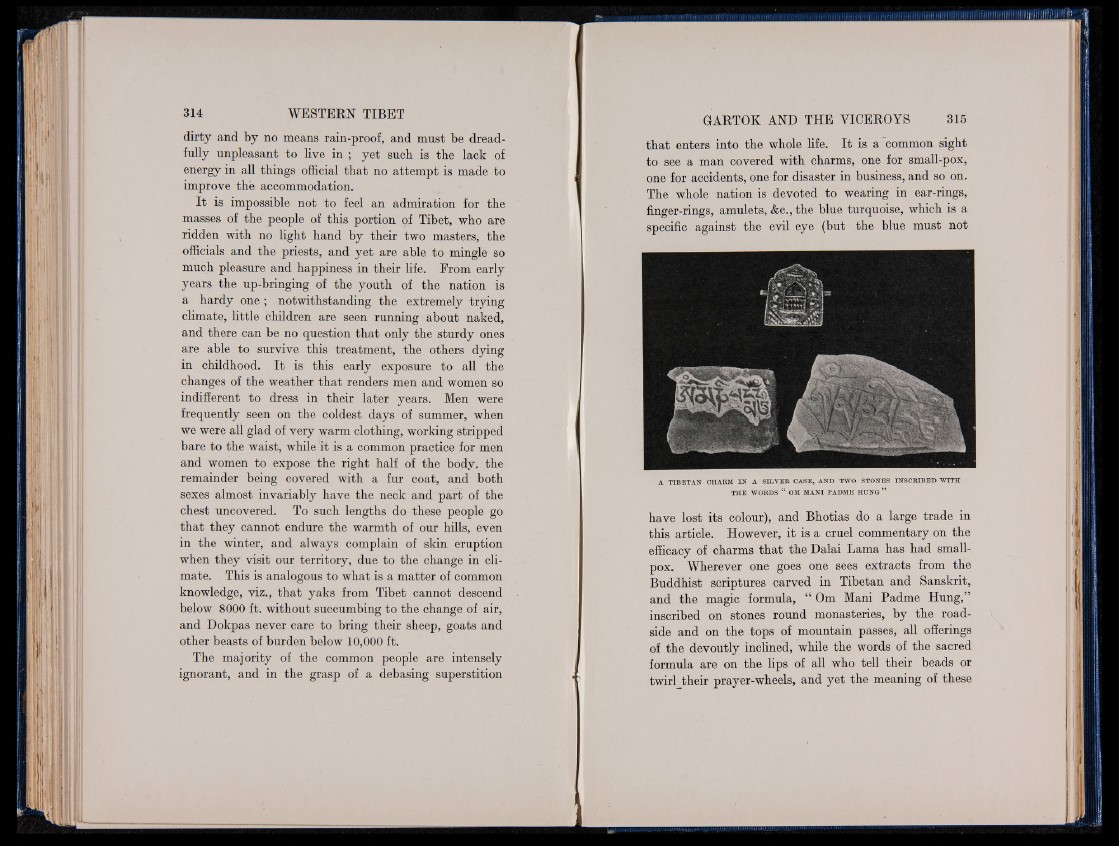
dirty and by no means rain-proof, and must be dreadfully
unpleasant to live in ; yet such is the lack of
energy in all things official that no attempt is made to
improve thè accommodation.
It is impossible not to feel an admiration for the
masses of the people of this portion of Tibet, who are
ridden with no light hand by their two masters, the
officials and the priests, and yet are able to mingle so
much pleasure and happiness in their life. From early
years the up-bringing of the youth of the nation is
a hardy one ; notwithstanding the extremely trying
climate, little children are seen running about naked,
and there can be no question that only the sturdy ones
are able to survive this treatment, the others dying
in childhood. I t is this early exposure to all the
changes of the weather that renders men and women so
indifferent to dress in their later years. Men were
frequently seen on the coldest days of summer, when
we were all glad of very warm clothing, working stripped
bare to the waist, while it is a common practice for men
and women to expose the right half of the body, the
remainder being covered with a fur coat, and both
sexes almost invariably have the neck and part of the
chest uncovered. To such lengths do these people go
that they cannot endure the warmth of our hills, even
in the winter, and always complain of skin eruption
when they visit our territory, due to the change in climate.
This is analogous to what is a matter of common
knowledge, viz., that yaks from Tibet cannot descend
below 8000 ft. without succumbing to the change of air,
and Dokpas never care to bring their sheep, goats and
other beasts of burden below 10,000 ft.
The majority of the common people are intensely
ignorant, and in the grasp of a debasing superstition
that enters into the whole life. It is a common sight
to see a man covered with charms, one for small-pox,
one for accidents, one for disaster in business, and so on.
The whole nation is devoted to wearing in ear-rings,
finger-rings, amulets, &c., the blue turquoise, which is a
specific against the evil eye (but the blue must not
A TIBETAN CHARM IN A SILVER CASE, ANI> TWO STONES INSCRIBED WITH
THE WORDS “ OM MANI PADME HUNG ”
have lost its colour), and Bhotias do a large trade in
this article. However, it is a cruel commentary on the
efficacy of charms that the Dalai Lama has had smallpox.
Wherever one goes one sees extracts from the
Buddhist scriptures carved in Tibetan and Sanskrit,
and the magic formula, “ Om Mani Padme Hung,”
inscribed on stones round monasteries, by the roadside
and on the tops of mountain passes, all offerings
of the devoutly inclined, while the words of the sacred
formula are on the lips of all who tell their beads or
twirl their prayer-wheels, and yet the meaning of these